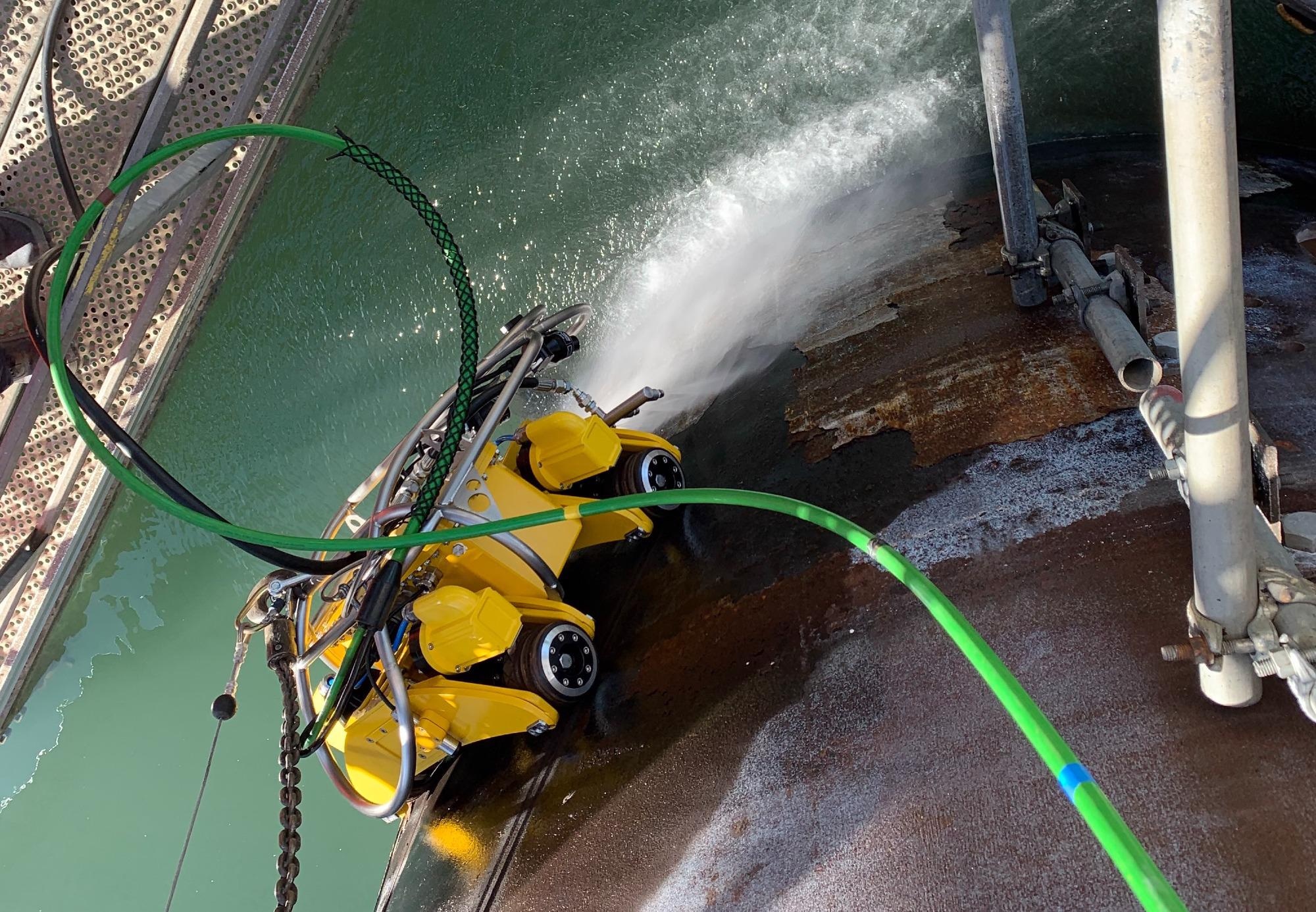Accelerating the development of robotics and autonomous systems (RAS) will be a significant enabler to reaching Net Zero, according to new research from the Offshore Renewable Energy (ORE) Catapult.
 Wind turbine inspection robot, Amphibian. Image Credit: Offshore Renewable Energy (ORE) Catapult
Wind turbine inspection robot, Amphibian. Image Credit: Offshore Renewable Energy (ORE) Catapult
ORE Catapult highlights that by 2050, the global robotics market in the energy sector will be worth £8.4bn. With its high-growth forecasts, wind energy (onshore and offshore) is expected to open up a new robotics frontier that will be valued at £1.3bn by 2030, increasing to £3.5bn by 2050. Meanwhile, declining production will see the oil and gas market’s robotics market peak at £5bn in 2030, before reducing to £3.3bn by 2050.
The UK is targeting a seven-fold increase in offshore wind capacity by 2050, and with this growth comes the need for more operations and maintenance (O&M) activity. With windfarms set to be located in deeper, more remote, often challenging waters, securing safe access for humans will be a significant industry challenge.
Accelerating and investing in the development of advanced RAS will mitigate this risk and means robots will handle not only routine maintenance tasks, but also improve pre-emptive maintenance, which will extend the life of components and turbines at sea, supporting the industry’s waste reduction drive.
ORE Catapult’s report highlights that the global wind O&M market (both onshore and offshore) will grow from £51bn in 2030 to £120bn in 2050. While robotics will take a share of this prize, these technologies will also combine with data and digital solutions and other forms of O&M to increase that market share.
This is a huge opportunity for the UK to add value to the supply chain by leveraging its offshore oil and gas experience and global leadership in offshore wind. The expansion of offshore wind is set to offset many of the oil and gas jobs set to be lost over the next 30 years, with RAS set to create a 200,000 net jobs boost across all UK sectors by 20381.
While the UK offshore wind O&M market for robotics is set to double in size, the export potential is even greater and set for staggering growth of 410%, increasing from £235m in 2030 to £1.2bn in 2050.
Gavin Smart, Head of Analysis & Insights at ORE Catapult, said: “The growth of the global energy market presents a remarkable opportunity for robotics and autonomous systems. This is not only the case in offshore renewables, a sector which continues to grow at pace, but also in oil and gas in the short to medium term.
“What is unique about the robotics market is the potential for cross-application technologies. It is likely that the solutions that will maximise performance, increase efficiency and improve safety will be adapted to work across multiple industries – inside and outside energy.
“As we continue to work towards achieving Net Zero, it is clear that robotics will play a key part. The opportunity this presents for the UK is significant – across the supply chain we can create jobs, upskill our energy workforce, build export potential and add value to our economy.”
ORE Catapult supports many robotic technologies that have already shown promise for the offshore wind sector, including robots that can crawl turbine blades to conduct repair and maintenance, robots that can perform subsea cleaning and inspection tasks, and uncrewed vessels that provide a power and communication hub for remotely operated and autonomous underwater vehicles.
Gavin continued: “Cutting-edge research and development into robotic technologies for offshore wind is already taking place, right here in the UK. We are building a position as a pioneer and expert in this field, which opens up a multi-billion pound domestic and export market over the coming decades.
“ORE Catapult is driving forward the pace of investment and R&D, and by defining the size of the prize on offer, we want to encourage the UK supply chain to capitalise on the opportunities. This is an incredibly exciting space to be in right now.”
To read ORE Catapult’s full research report and discover more about the technologies already in action, visit: https://ore.catapult.org.uk/wp-content/uploads/2021/09/ORE-Catapult-RAS-market-report-FINAL.pdf